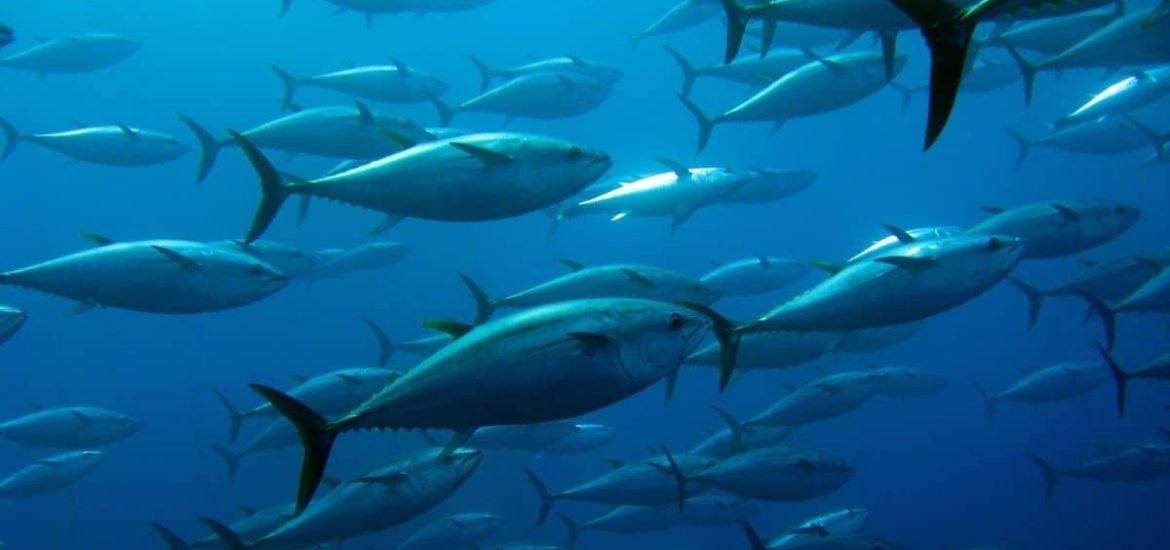
More big fish in the sea can reduce the amount of carbon dioxide emissions that are released into the atmosphere, according to a new study published on 28 October in Science Advances (1). This so-called ‘blue carbon’ represents an important opportunity to help tackle climate change. But until now, the role of fish as a potential carbon sink has only been speculated upon.
Large fish like tuna and sharks are made up of around 10 to 15 per cent carbon. “When these fish die, they sink rapidly,” explained co-author Prof David Mouillot of the ARC Centre of Excellence for Coral Reef Studies at James Cook University and the University of Montpellier.
“As a result, most of the carbon they contain is sequestered at the bottom of the sea for thousands or even millions of years. They are therefore carbon sinks — the size of which has never been estimated before.”
However, the fishing industry has disrupted this natural phenomenon, and overfishing continues to deplete ocean fish stocks. Fisheries around the world are responsible for extracting large amounts of this blue carbon. “When a fish is caught, the carbon it contains is partly emitted into the atmosphere as CO2 a few days or weeks after”, said lead author Gaël Mariani, a PhD student at the University of Montpellier.
The team of researchers used global fish catches data to estimate the blue carbon extracted from the ocean and released into the atmosphere as a result of fishing. They found that the carbon footprint of fisheries might be 25 per cent higher than previous estimates.
Their analysis showed that since 1950, ocean fisheries have released more than 730 million tonnes of carbon dioxide (CO2) into the atmosphere. In 2014 alone, industrial fisheries emitted at least 20.4 million tonnes of CO2, which is equivalent to the annual emissions of 4.5 million cars.
The team also estimated the extent that fishing in remote unprofitable areas in the high seas contributes to CO2 emissions and found that this phenomenon also happens in areas where fishing is not economically profitable, such as in the Central Pacific, South Atlantic, and North Indian Oceans. And more fuel is needed to reach these areas.
“Fishing boats produce greenhouse gases by consuming fuel,” said Prof Mouillot. “And now we know that extracting fish releases additional CO2 that would otherwise remain captive in the ocean”. In light of this new discovery, the authors call for additional protection and management measures so that more large fish remain in the ocean as an important carbon sink, rather than adding yet another source of atmospheric CO2.
Limiting or preventing fishing activities, at least in unprofitable areas of the high seas, while managing all fisheries with a view to maintaining long-term viability and productivity of fish stocks, would reduce CO2 emissions from fuel and help rebuild depleted fish stocks.
(1) Mariani, G. et al. Let more big fish sink: Fisheries prevent blue carbon sequestration — half in unprofitable areas. Science Advances (2020). DOI: 10.1126/sciadv.abb4848